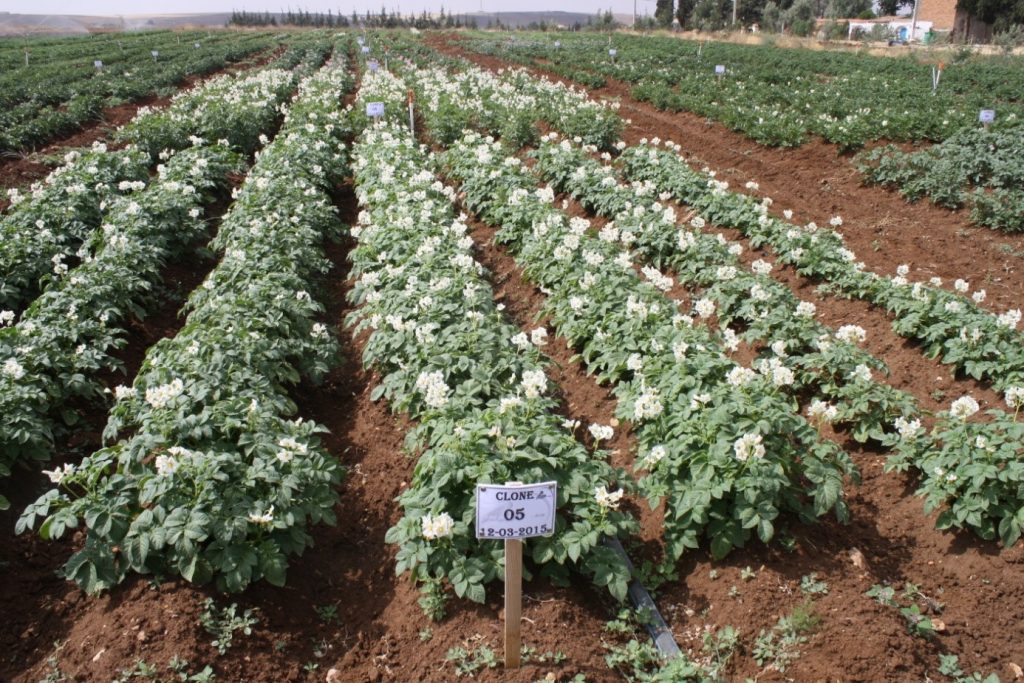The main objective of PRECIMED is the development, validation and transfer of a data driven irrigation/fertilization management system, in order to improve Water and Nutrient Use Efficiency (WUE and NUE respectively) in the Mediterranean region, by integrating the knowledge about fertilizers and irrigation water management with Information Communication Technologies (ICTs). In this sense, one of the main aims of PRECIMED is to optimize the sustainability of agriculture by using Precision Irrigation techniques, adopting and implementing new water and nutrient management practices.
The simple description of the Precision Agriculture is a way to “apply the right treatment in the right place at the right time” (Gebbers and Adamchuk, 2010). Precise irrigation methods are developing rapidly in order to save water while improving yields and fruit quality. Precision irrigation is a new issue as the sector had to respond to societal demands for reductions in water allocation and improvements in efficiency. Irrigation strategies have been proven to successfully increase of WUE by reducing water use. Thus, the current trend of fertirrigation management implies.
- precision crop irrigation and fertirrigation;
- use of crop-based information (crop indicators/descriptors);
- enhanced analysis, interpretation and valorization of the collected data et
- development of systems for growers’ aid on efficient fertirrigation control.
Therefore, other objectives of PRECIMED is to provide knowledge, know-how and tools related to efficient and intelligent applications to aid fertirrigation control. To achieve the intent of the project, 4 Key Objectives have been identified:
Objective 1: To Improve WUE and NUE in the Mediterranean Region by using intensive ICT solutions
In the Mediterranean Regions, there is a need for technologies that increase water use efficiency and make non-conventional water sources available for fertirrigation, thereby decreasing water scarcity and the discharge of water and nutrients to the environment to optimise the sustainability of agriculture. Precimed project will research, develop and validate a Standards-based Decision Support System (DSS) including Irrigation/Fertirrigation Models for a massive analysis of real-time crop and meteorological status data to improve the efficient use of water, nutrients and energy. For this, the consortium will integrate the knowledge on fertilizers and irrigation of Mediterranean crops with innovative information and communication technologies (ICT) to develop a solution that will be respectful with the environment and economically profitable. The DSS platform will be able to collect a large amount of crop data, which will be processed and analyzed in order to provide notices to the user about crop needs and real-time recommendations to farmers regarding the best irrigation and fertilization practices. The DSS will offer management services and remote actuations to improve the lives of Mediterranean farmers and also save water and fertilizers in a region with significant problems of water stress and soil pollution.

Objective 2: To facilitate the interchange of technology and best good practices between EU and non-EU Mediterranean countries in order to improve WUE and NUE in all the Mediterranean Region
The challenge is to create stronger bridges between the two areas of the Mediterranean basin, which is made up of EU and non-EU countries: Tunisia, Algeria, Spain and Greece. In this sense, the consortium is made up of SMEs, research centers and end users that will collaborate to validate the solution for subsequent commercialization.
Objective 3 : To develop and validate (in different demonstration farms) a Standards-based Decision Support System
For data-driven irrigation/fertilization management that evaluates the medium-term evolution of crop nutritional status, soil salinity, yield and fruit quality and safety, optimizing the water and fertilizers needs and the energy costs at farm level.
The goal is to test the PRECIMED performance in the field conditions to evaluate its performance and versatility for different agricultural conditions, and to see the aspects that can be improved so that the precision irrigation is more accurate. For that, it’s planned 1) to implement and validate the system in different agricultural exploitations, 2) to demonstrate and to evaluate the DSS performance according to plant physiology parameters and crop nutrient status in open air crops and horticultural crops under greenhouse conditions and 3) to analyze the users’ feedback and business model testing.
Objective 4: To ensure that project activities and outcomes reach the relevant target groups
According to the Strategic R&I Agenda, PRECIMED targets the topic of “Irrigation technologies and practices” to contribute to the following objectives:
a) Innovative earth observation and ICT tools-based, Decision Support Systems for planning adaptation to global changes and anticipating droughts;;
b) Enhanced remote sensing and ICT technologies and devices for assessing water and energy budget
c) Optimized balance between soil evaporation and plant evaportranspiration to improve plant water status and retention soil-water productivity;
d) Decision support systems based on cost-effective devices and sensors for irrigation under water quality/quantity constraints;
e) Water treatment technology for specific irrigation requirements (e.g., precision irrigation)
The methodology proposed will enhance the users’ acceptance and will facilitate a wide adoption of the developed technologies by a larger agriculture community including the relevant stakeholders (farmers).

